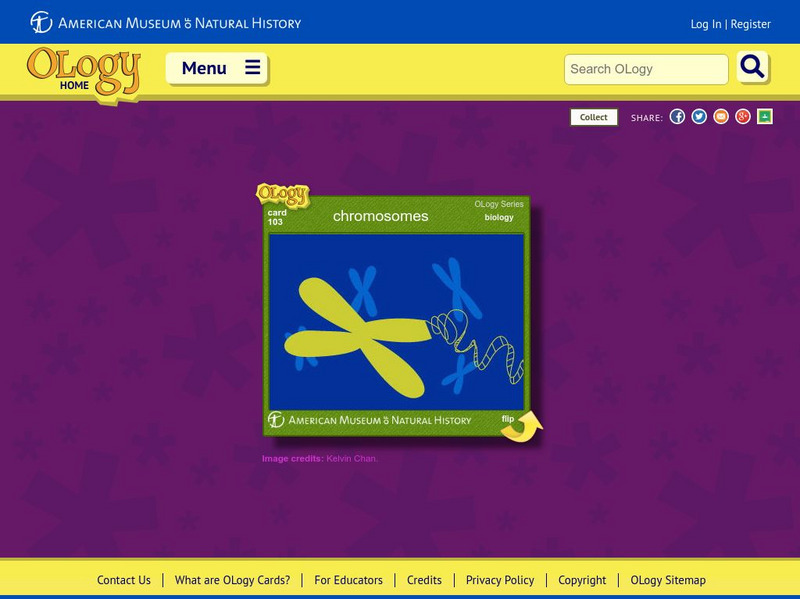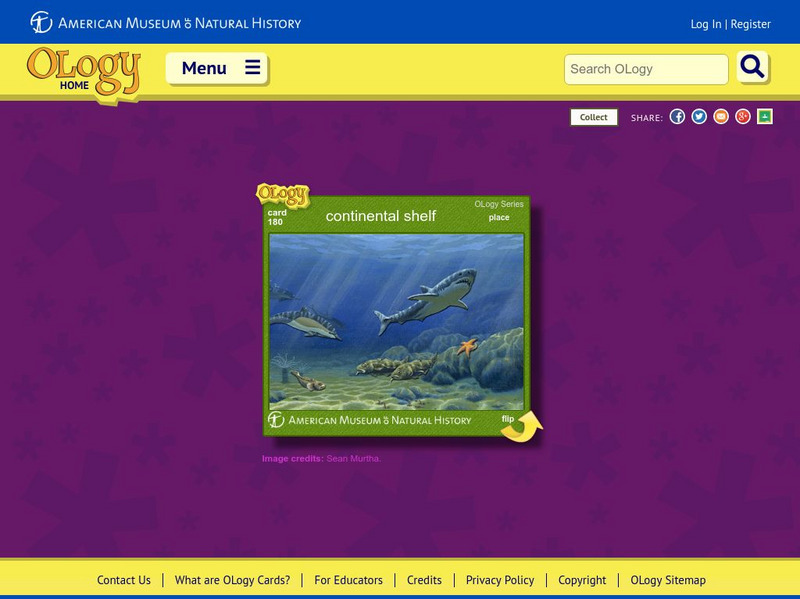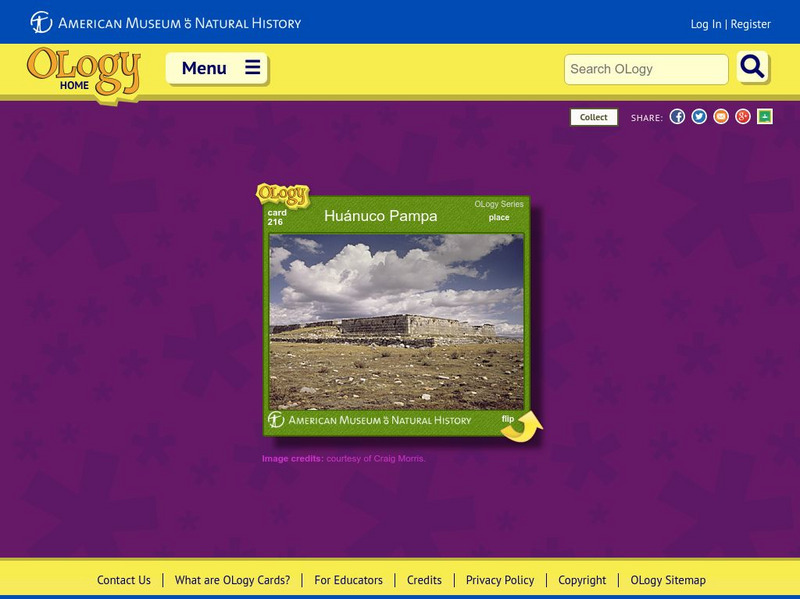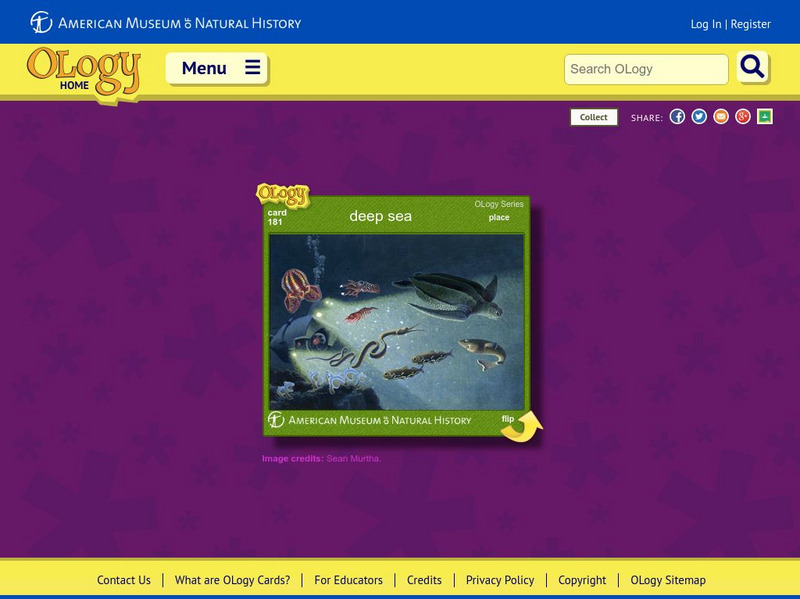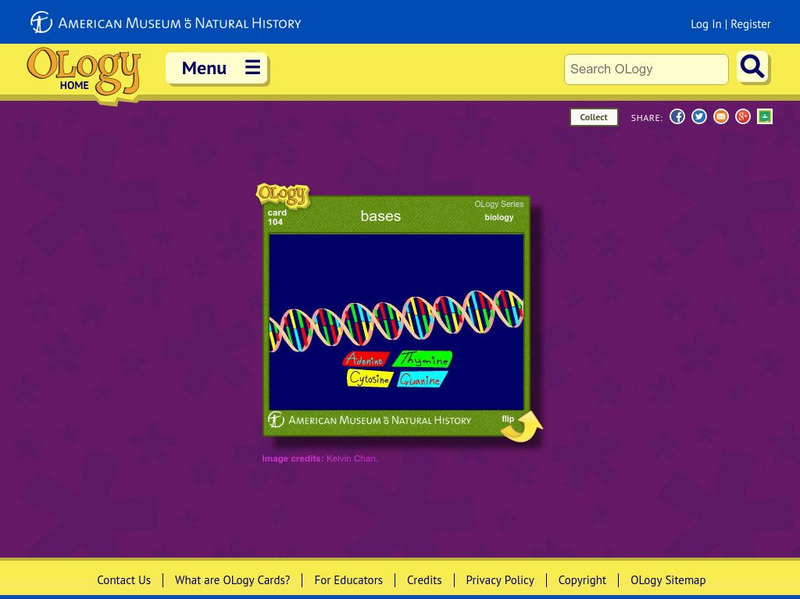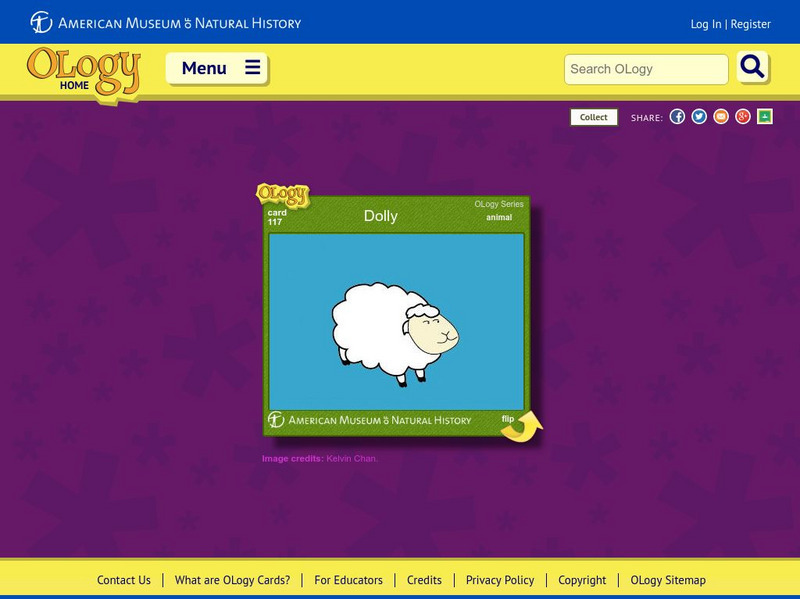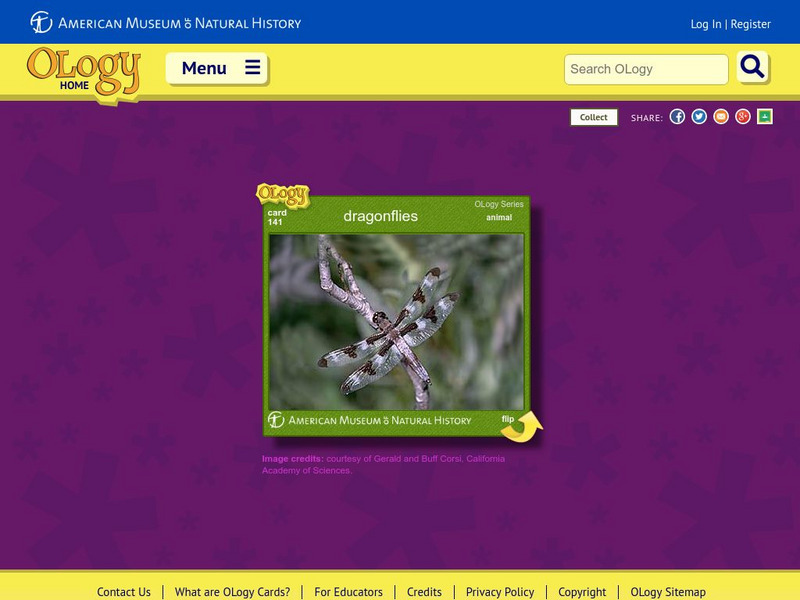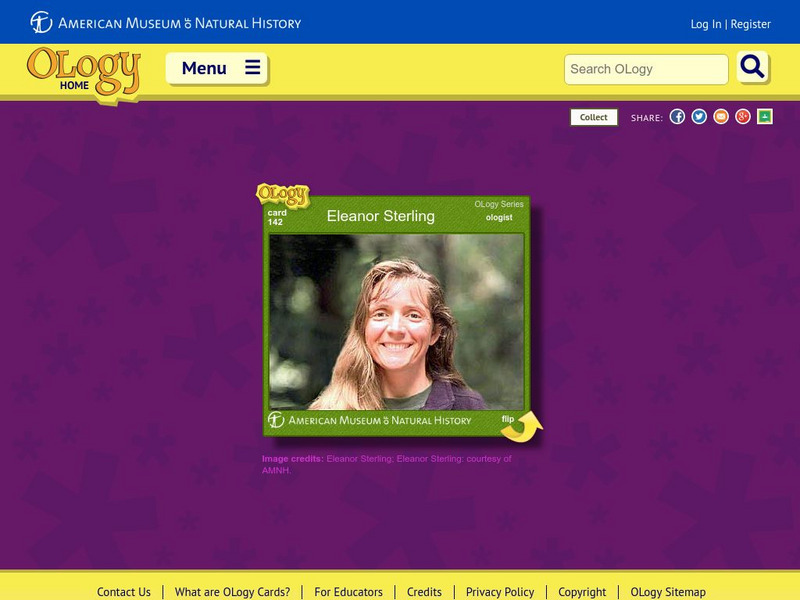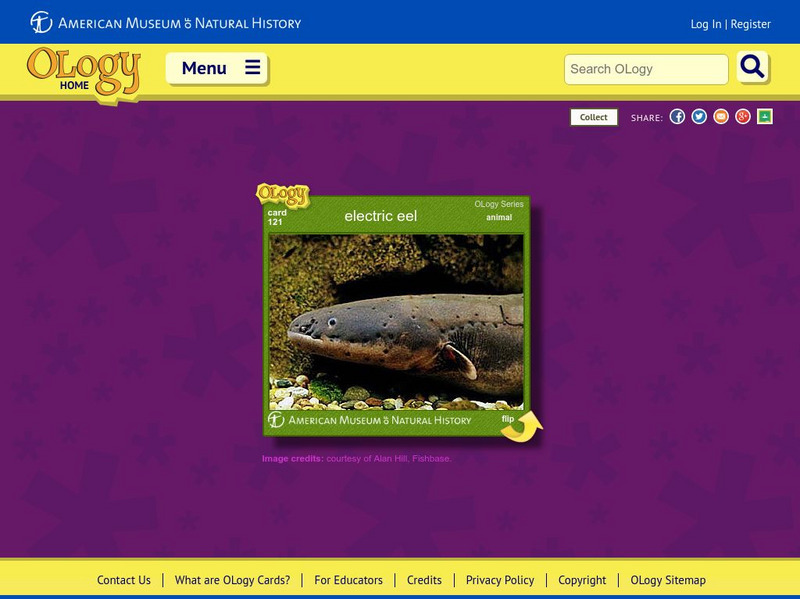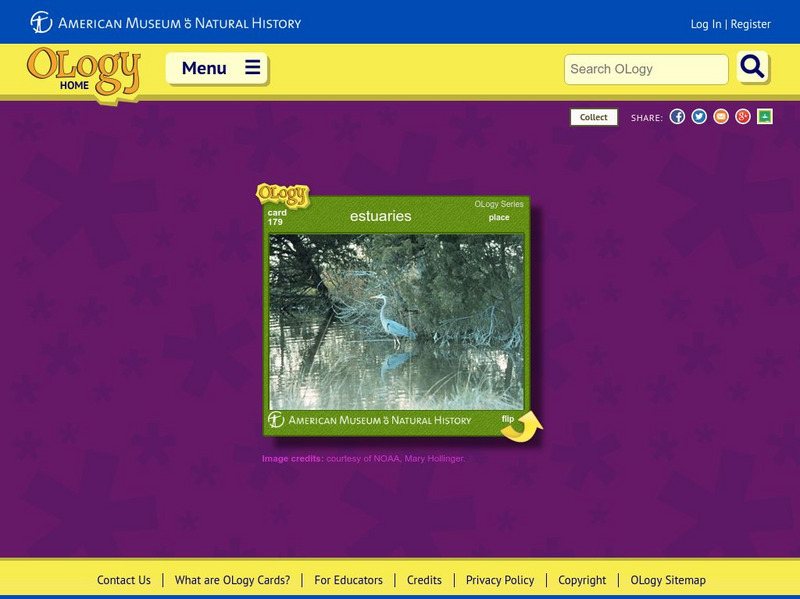American Museum of Natural History
American Museum of Natural History: Chromosomes O Logy Card
Flip this interactive card to start learning about chromosomes, tiny, spaghetti-like packages of information. Answer multiple-choice and fact-or-fiction questions and review some fast facts about chromosomes.
American Museum of Natural History
American Museum of Natural History: Common Dolphin O Logy Card
Flip this interactive OLogy card and start learning bite-size pieces of useful information about the common dolphin, such as its habitat, diet, and physical characteristics.
American Museum of Natural History
American Museum of Natural History: Communication O Logy Card
Turn over this interactive OLogy card and start learning bite-size pieces of useful information about how animals communicate.
American Museum of Natural History
American Museum of Natural History: Continental Shelf O Logy Card
Turn over this interactive card to find fast facts, questions and answers, and similar bite-size pieces of information to help you understand the continental shelf.
American Museum of Natural History
American Museum of Natural History: Jurassic Period O Logy Card
Learn a few facts about the Jurassic period from this interactive Ology card that also includes questions that can be answered. There is some information about Pangaea and dinosaurs.
American Museum of Natural History
American Museum of Natural History: Invertebrate O Logy Card
Flip this interactive OLogy card to find questions and answers, fast facts, and other bite-size pieces of information to help you understand important characteristics of invertebrates.
American Museum of Natural History
American Museum of Natural History: Invasive Species O Logy Card
Uncover facts about invasive species by turning over this interactive OLogy card.
American Museum of Natural History
American Museum of Natural History: Igneous Rock O Logy Card
What is igneous rock? How is it formed? What makes igneous rock different from sedimentary rock or metamorphic rock? This interactive OLogy card answers these and similar questions.
American Museum of Natural History
American Museum of Natural History: Ian Harrison, Ichthyologist, O Logy Card
This OLogy card introduces you to ichthyologist Ian Harrison, a researcher for the American Museum of Natural history. Learn what led to Ian's interest in fish and what it is like to be a working scientist.
American Museum of Natural History
American Museum of Natural History: Hydrothermal Vents O Logy Card
Check out this interactive OLogy card to learn about hydrothermal vents, also known as black smokers.
American Museum of Natural History
American Museum of Natural History: Huanuco Pampa O Logy Card
Flip this interactive OLogy card to start learning about the well-preserved remains of the Incan city of Huanuco Pampa.
American Museum of Natural History
American Museum of Natural History: Coral Reefs O Logy Card
By turning over this interactive OLogy card, you will find fast facts, questions and answers, and similar bite-size pieces of information designed to help you learn about coral reefs.
American Museum of Natural History
American Museum of Natural History: Cyanobacteria Ology Card
Flip this interactive card to find questions and answers, fast facts, and other bite-size pieces of information about cyanobacteria.
American Museum of Natural History
American Museum of Natural History: Deep Sea O Logy Card
Flip over this interactive OLogy card to find fast facts, questions and answers, and similar bite-size pieces of information about the deep sea and the creatures that live there.
American Museum of Natural History
American Museum of Natural History: Dna Base Pairs O Logy Card
Flip this interactive OLogy card to find questions and answers, fast facts, and other bite-size pieces of information to help you understand DNA bases A, T, G, and C.
American Museum of Natural History
American Museum of Natural History: Dolly O Logy Card
Dolly the sheep, the first mammal to be cloned with DNA from an adult cell, is the subject of this interactive OLogy card. Flip the card to find questions and answers, fast facts, and other bite-size pieces of information that focus your...
American Museum of Natural History
American Museum of Natural History: Domestication O Logy Card
An interactive program educating learners about the domestication of animals.
American Museum of Natural History
American Museum of Natural History: Dragonflies O Logy Card
Flip this interactive card to find fast facts, questions and answers, and other bite-size pieces of information about dragonflies.
American Museum of Natural History
American Museum of Natural History: Dzanga Sangha Rain Forest O Logy Card
Flip this interactive OLogy card to find fast facts, questions and answers, and other bite-size pieces of information Dzanga-Sangha rainforest.
American Museum of Natural History
American Museum of Natural History: E = Mc^2 O Logy Card
Flip over this interactive OLogy card and start learning bite-size pieces of useful information about E = mc^2, Einstein's famous equation that shows the relationship between mass and energy.
American Museum of Natural History
American Museum of Natural History: Earthquakes O Logy Card
This interactive OLogy card defines earthquakes, provides fast facts about them, and lets you test your knowledge of earthquakes with fact-or-fiction questions.
American Museum of Natural History
American Museum of Natural History: Eleanor Sterling, Scientist, O Logy Card
Flip the card to learn about the conservationist Eleanor Sterling, who works with people all over the world to conserve the biodiversity of our planet.
American Museum of Natural History
American Museum of Natural History: Electric Eels O Logy Card
Flip this interactive OLogy card to find a definition, fast facts, questions and answers, and other bite-size pieces of information about electric eels.
American Museum of Natural History
American Museum of Natural History: Estuaries O Logy Card
Turn over this interactive OLogy card to find fast facts, questions and answers, and similar bite-size pieces of information to help you understand the nature of estuaries.


